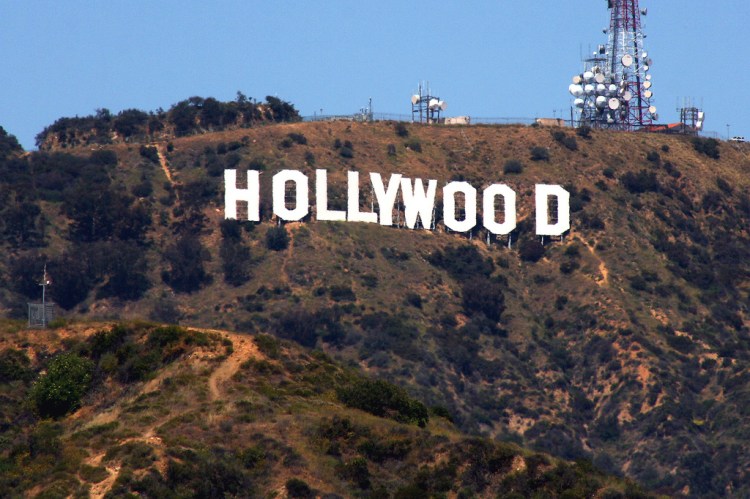NBCUniversal made a big mistake this week by deciding to shut down the game publishing business that Chris Heatherly spent almost three years building. It was a work in progress, and the payoff from that investment would happen in the future, maybe in a couple of years. Instead, the strategic plan to internally publish games got cut short, and the company decided to fall back on licensing games to external developers and publishers.
This decision was shortsighted, as it suggests games are less important than movies, TV, or music. But games are the form of entertainment that connects best with young and older people alike. And since 80% of young folks are gamers, the future of games is brighter than the future of other forms of entertainment. That’s why we have a $180 billion game industry that is bigger than TV or movies.
Hollywood still doesn’t get this. NBCUniversal was moving ahead with mobile games and had barely greenlit its big games for the PCs and consoles. And yet, here it was, called out to show what it had accomplished a couple of years before the returns were going to come. Universal had no time to experiment and “find the fun,” as is always necessary in the process of making great games. It was a financial risk, as it was still investing heavily in its future and not producing big returns today. If NBCUniversal had a better use for that cash, I’m not sure what it was. But it looks like it is not the only Hollywood conglomerate retreating from games.
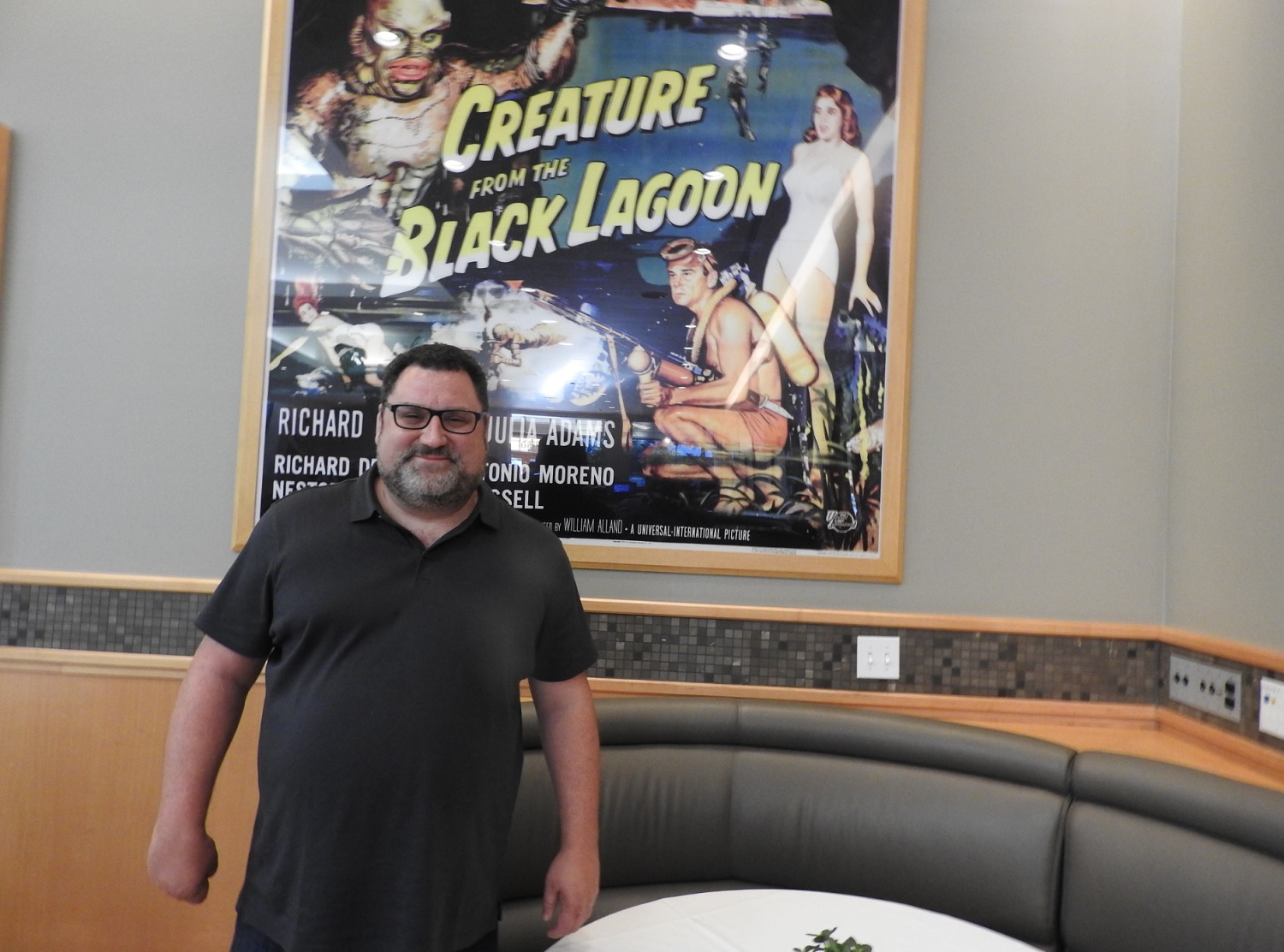
Above: Chris Heatherly, executive vice president of Universal Development.
I’ve been thinking about Hollywood and games lately. I recently moderated a panel on the topic at GameDaily Connect in Anaheim, California, just a stone’s throw from Disneyland. The panelists included Steve Fowler, senior vice president of marketing, FoxNext Games; Guy Costantini, vice president of global interactive marketing at Skydance; Matt McMahon, senior vice president of business development at Seriously; and Barry Dorf, business development for Amazon Game Services at Amazon.
June 5th: The AI Audit in NYC
Join us next week in NYC to engage with top executive leaders, delving into strategies for auditing AI models to ensure fairness, optimal performance, and ethical compliance across diverse organizations. Secure your attendance for this exclusive invite-only event.
We had a lively discussion. They all had a lot of experience at the intersection of games and Hollywood, but perhaps I was most free to express my opinions about games and Hollywood. I’ve tried to synthesize what I’ve heard and break it down in this column.
The early days of Hollywood and games
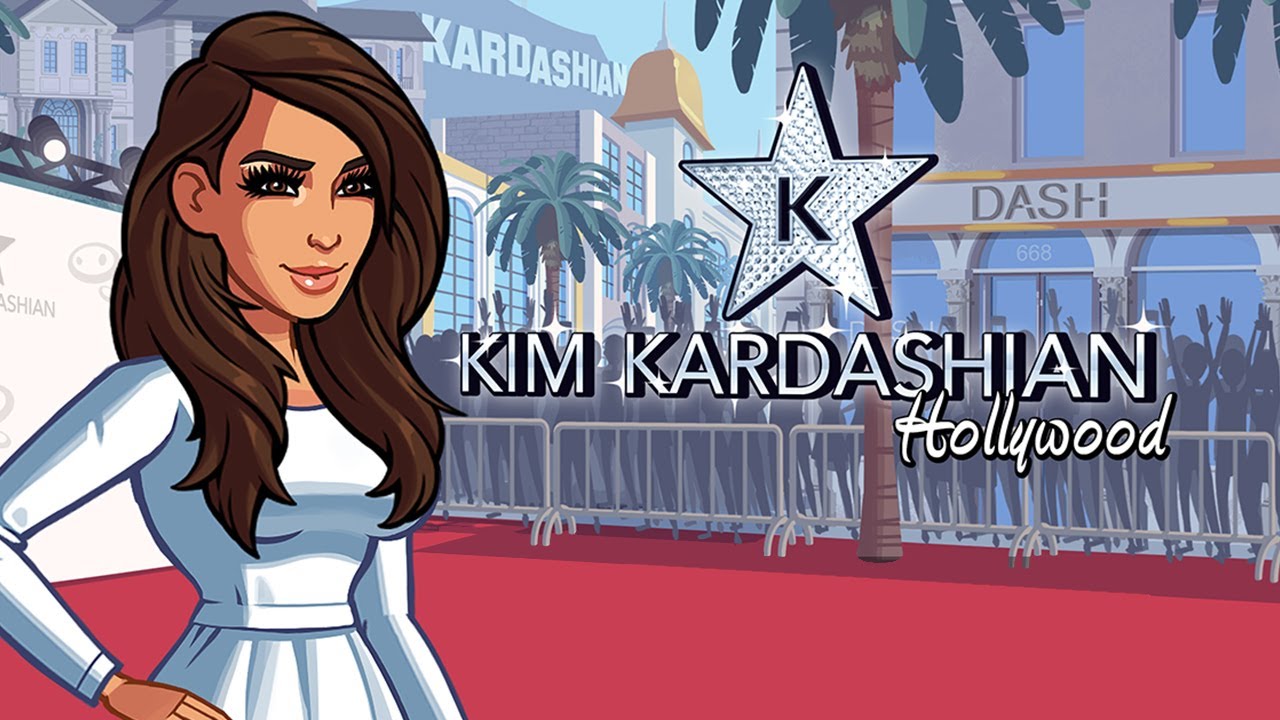
Above: Kim Kardashian: Hollywood gives you the chance to play the game of fame.
One of the first things to remember is that Hollywood moves in cycles, and that’s true with its love-hate relationship with games. Fowler at FoxNext games remembered being at Interplay Productions a couple of decades ago, making Star Trek and Lord of the Rings games. The Hollywood licensors didn’t understand games but they didn’t bother the game makers either. Sometimes, the games created, like the ill-fated E.T.: The Extra-Terrestrial from Atari, bore no resemblance to the hit movie.
“Later on, if you want to call it 2.0, Hollywood did start paying attention to us,” Fowler said.
That phase gave way to tight control, when the game makers dictated schedules. They saw games as a marketing boost for movies, and forced the game developers to create games that came out on the same day as the movie. This usually resulted in terrible games, as it gave very little time for the experimentation that happens in preproduction. Quality suffered.
“Fast forward to now, at least from my perspective at FoxNext, with the Marvel licenses and the Lightstorm partnerships we have, it’s completely different. We make great games first, and then we leverage the popularity and awareness of beloved franchises,” Fowler said. “The partners understand that. Marvel, who we’re deeply engaged with — we have the deepest relationship with them so far, a year and a half in on Strike Force — is a great partner.”
The industry also had to deal with finicky intellectual property owners, like J.K. Rowling, author of the Harry Potter novels. When she licensed EA to make Harry Potter games, she would often painstakingly approve or reject every small detail in the games. Sometimes IP owners rejected things like new characters or events or stories. That slowed down game development, and made it very frustrating, even if it ultimately did lead to a better relationship over time and a pot of gold for both EA and Rowling.

Above: Marvel Strike Force
The iPhone era had some surprise hits, like Glu Mobile’s Kim Kardashian: Hollywood. But it was hard to reproduce the conditions for magic to happen a second or third time. But just we see a flood of games on every platform — on PC, console, and mobile — now we also see a flood of Hollywood licenses.
“There’s so much noise now in all the stores with all the games. That wasn’t true with 1.0 or 2.0,” Dorf said. “If you had the Harry Potter license you owned the Harry Potter license and that was it. Even when we did Lord of the Rings at EA, there was no other game that was going to come out within months. Now they’re putting windows in the app stores–you have a four-week window where you’re going to be the only new Marvel game coming out. That’s it. When four weeks is up, there’s another game. You can’t miss your date, because that’s all the time you have.”
And what matters now is building long-term relationships with fans — like Kabam’s long-running Marvel Contest of Champions game, which has lasted for years as one of the top games in the app stores. These games have to be authentic, leverage the unique advantages of the game platforms, and last for a long time.
“You have to be a fan of what you’re creating. People will see right through you if you’re trying to just put a name on something, or you’re trying to do what was done in the past,” said Constantini at Skydance. “You have to put the team together to create an entertainment property. It’s true on the game side as well as the entertainment side. You need someone who’s a believer and who makes everyone around them a believer. Otherwise you’re not going to have any credibility. You’re not going to create something special.”
Triggering the cycle of fear
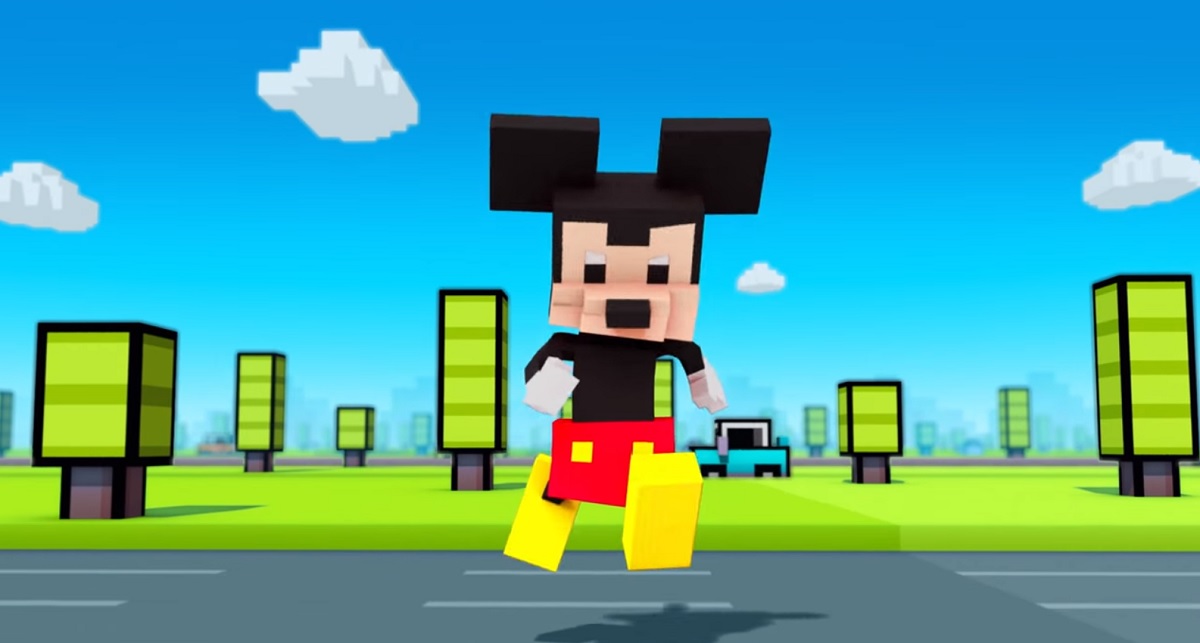
Above: Disney Crossy Road
Every once in a while, some catastrophe, like the shutdown (and later rebirth) of Telltale Games, which was making a lot of Hollywood games, will trigger a cycle of fear. In fact, fear seems to move in cycles. Steve Jobs was not a fan of games, and that hamstrung Apple for years.
Disney CEO Bob Iger isn’t much of a game fan. He bought Lucasfilm and shut down Lucasarts, taking its Star Wars properties and licensing them out instead to Electronic Arts. He shut down Heatherly’s mobile game division a few years ago, prompting Heatherly to move to Universal. Then he bought Fox and inherited with it the new FoxNext Games division. Predictably, he has now put FoxNext Games up for sale.
Peter Levin also recently left a position as president of interactive ventures and games at Lionsgate. He had greenlit a lot of virtual reality and traditional games at Lionsgate. The VR games have been slow to take off, as VR in general has been a slow cooker among consumers. But Lionsgate’s were evidently profitable, as is the overall games business at Lionsgate.
Not all is lost, but a lot of fear is circulating now.
The upstarts are dipping their toes in games

Above: Spider-Man captures a bag of Sony money.
When I say all is not lost, I can point to some amazing games like the Batman: Arkham series or Spider-Man.
Sony Pictures is still part of Sony, owner of the PlayStation business, and Sony, Insomniac, and Marvel teamed up to produce the best superhero game in history, Marvel’s Spider-Man, last fall. It was a fun title that combined awesome webslinging gameplay with a great story and characters who had a lot of depth. It was perhaps the pinnacle of the intersection of Hollywood and games.
But Sony is a small company among the giants here. I’ve heard an unsubstantiated rumor that Apple wants to buy Sony, and that would make sense. The upstarts of the entertainment business — Apple, Amazon, and Netflix — want to turn the status quo upside down. But I wouldn’t necessarily put a lot of stock in that rumor, as I don’t think Apple would know what to do with the game business. They might buy Sony Pictures and sell off PlayStation. Or maybe they would make Sony make only non-violent games. (Yes, I’m full of the jokes today.)
Netflix is dipping its toes into games. At this rate, in maybe 20 years, Netflix will have a good game business. And Amazon has also loaded up on game properties — it has a Lord of the Rings game license — and it has a game engine, game industry leaders, and game studios. But it’s been pretty slow to ship anything except a racing game. Annapurna and Skydance, owned by the Ellison kids, have pushed into indie games and virtual reality games, respectively. But they are still the brave small ones. These are examples of the new entertainment companies showing their ambition, but not necessarily embracing games to the fullest.
The crown jewel of Hollywood and games
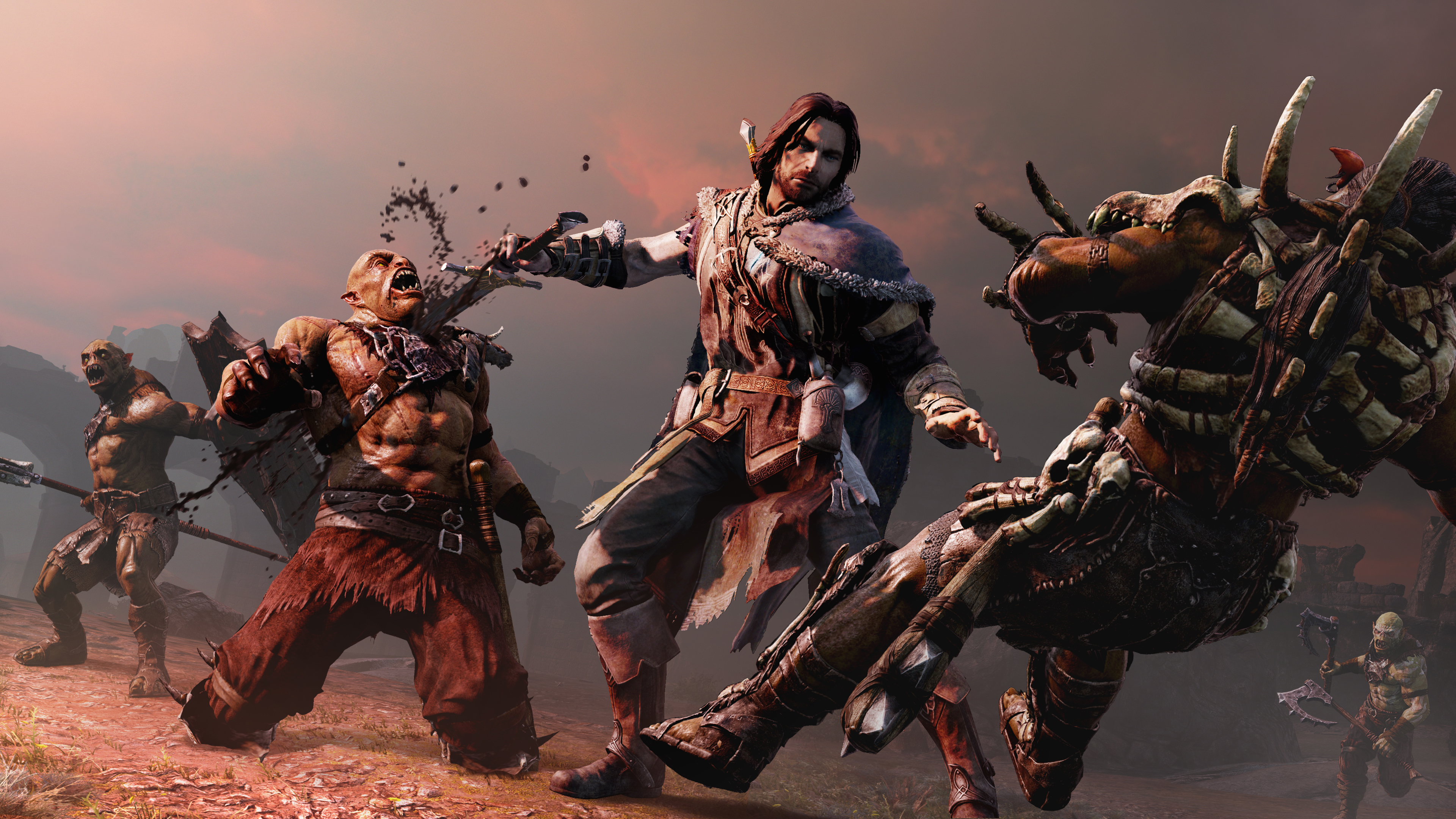
Above: Shadow of Mordor lets you run loose on the armies of Sauron.
Then we have Warner Bros. Interactive Entertainment, the great jewel of the Hollywood game companies. It has a dozen internally owned studios and more than a decade of experience making triple-A games. It has produced great titles like Shadow of Mordor, Mortal Kombat, Batman Arkham Asylum, Game of Thrones: Conquest, and a host of Lego titles. It has had consistent management with David Haddad, and it is big enough to pump out at least one major hit every year. And each studio still has multiple years and a lot of staff to produce high-quality games on a timetable that makes sense.
But even WBIE isn’t totally in the clear. AT&T recently bought Time Warner, and it has a lot of debt. The top executives could look upon WBIE as a treasure to be sold. If they granted perpetual licenses to the buyer, WBIE could fetch something like $5 billion, and that could pay down a lot of debt. Selling WBIE to the wrong hands might damage the asset, and that would be a tragedy. So it seems even well-oiled game companies aren’t immune from Hollywood’s insane up-down cycle with games. I would love to see WBIE go untouched, to continue doing what it is doing, and to spin up more studios like what it is doing in San Diego.
The danger for WBIE is that fear starts as a little thing, and it can spread. The Hollywood companies are doubling down on movies and TV. Maybe that is good for them, but they still aren’t counting games as part of the core strategy.
Fear is not helpful

Above: An excavator finds Atari E.T. game cartridges in a New Mexico landfill.
Aaron Loeb, president of studios at FoxNext Games, gave a good talk at the recent GameDaily Connect event in Anaheim, California. He said that developers should be inspired to be creative, and they should be supported by studio management. But fear, he said, is not useful. It is not a useful way to motivate developers to do their best work. Company leaders who instill fill in their ranks of the developers are not going to get a great result.
Ultimately, the traditional leaders will die off in Hollywood and the game leaders will assume positions of power. And who knows, maybe game leaders will rise up the ranks and ultimately run these Hollywood studios one day, just as Kaz Hirai rose up the ranks of PlayStation to become CEO of Sony, before retiring. He had a pretty good run at the top.
And we will see opportunity. Game-savvy Asian companies like Tencent and NetEase could come into Hollywood and buy the Hollywood companies or the game assets, if the governments in China and U.S. will let them. Or perhaps Electronic Arts and Activision Blizzard will make bids.
I don’t mean to be an unrelenting cheerleader for games. Some game studios should be shut down. Sometimes companies have better uses for cash than to put it into game development. Some movie licenses should never be made into games. Sometimes intellectual property creators don’t like games, such as Suzanne Collins, author of The Hunger Games. Perhaps Iger is right and licensing games to those who know how to publish and make them is the right strategy.
All of this is speculative on my part, as I haven’t been able to eavesdrop on the conversations that happen in the board rooms of these companies. I’ve only had the chance to watch the results over many years. Whatever happens, I just hope the results of this year’s Hollywood retrenchment will ultimately turn out good for the game industry. Hopefully, we’ll eventually get leaders who realize that you can do wonderful things with the combination of Hollywood and games.
